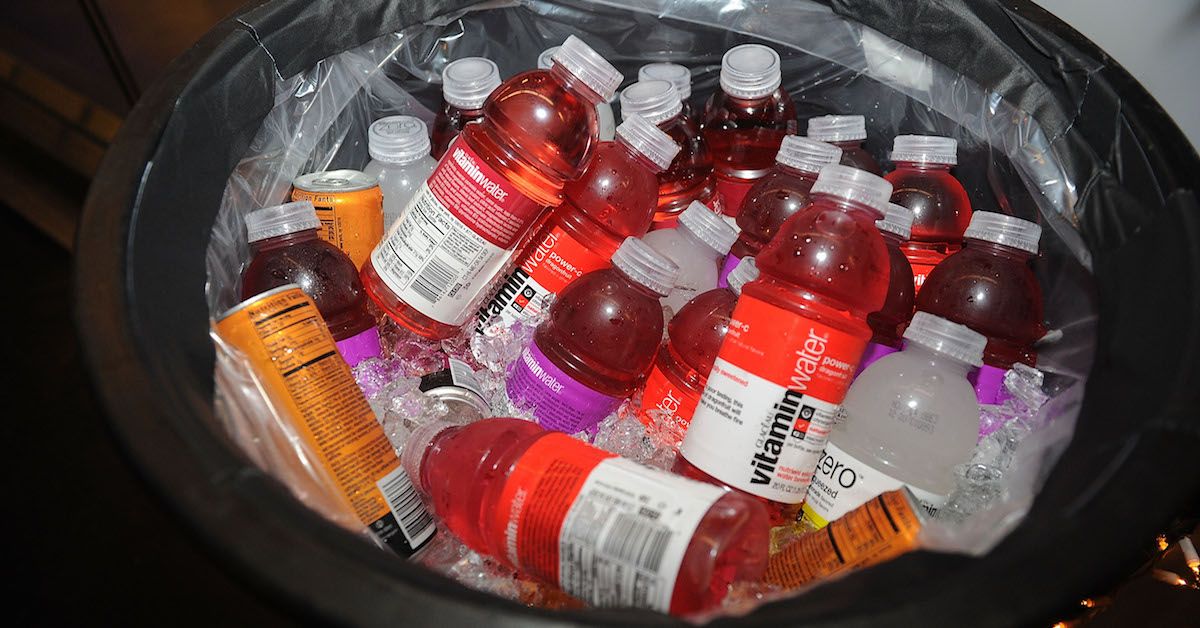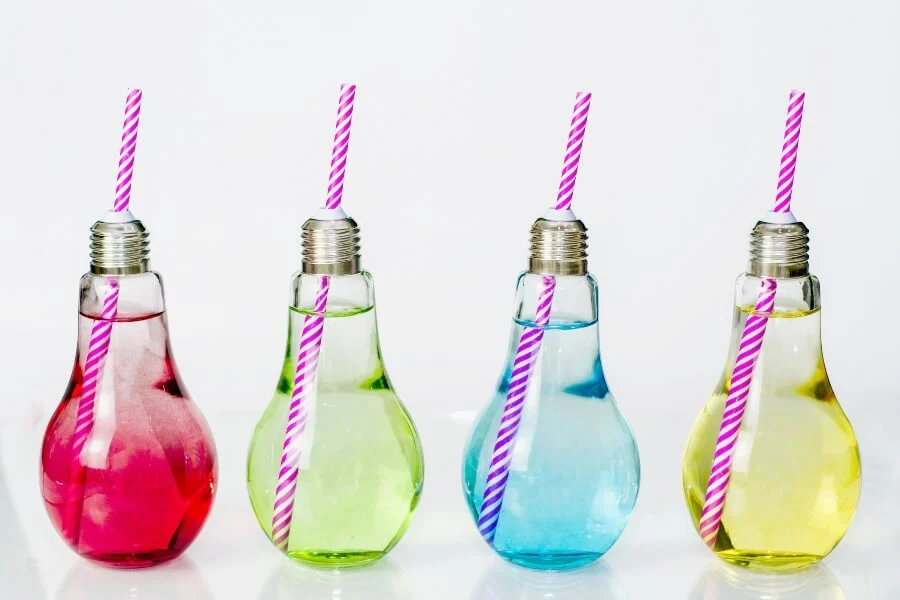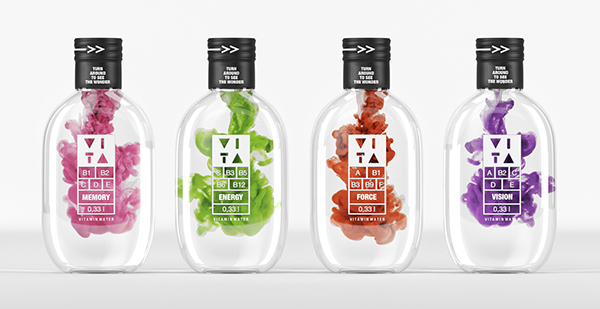What comes to your mind when you hear the word ‘Vitamin Water’?
It may suggest water loaded with ample vitamins healthy for your body. Unfortunately, the name is just a clever naming tactic. This colorful beverage may fascinate you from afar, but it is not as healthy as it is advertised.
Here is everything to know about Vitamin water and whether you should incorporate it into your daily diet or not.
What is Vitamin Water?
Many brands and manufacturers market vitamin water as a refreshing drink comprising antioxidants and vitamins such as Vitamin B and Vitamin C. However, it is merely a strategy to promote this beverage.
Vitamin water is a drink comprising water with added soluble vitamins. Many producers use various vitamin water flavors sweetened with sugar and other natural and artificial sweeteners. This water was firstly introduced in the US more than a decade ago. Its sales continue to grow as many consumers recognize the importance of vitamins in their diet and feel that its benefits outweigh the added calories.
Does Vitamin Water comprise Electrolytes?
Some manufacturers of vitamin water claim that it comprises electrolytes, vitamins and minerals like potassium, sodium, and magnesium. These electrolytes also exist in your blood and help your body in the following ways.
- They move nutrients into cells.
- They flush out toxins from your body by moving waste out of cells.
- They enable your muscles, such as the heart and nerves to function well.
- They balance your pH and water level.
The purpose of electrolytes in vitamin water is to help your body work and remain active throughout the day. Some studies claim that it also provides much-needed energy when you feel drained.
Can Vitamin Water be an Alternative to Soda?
Although we do not recommend drinking vitamin water in many cases, it may be an excellent alternative to soda. When you crave a thirst-quenching and mildly sweet beverage, you may consume organic vitamin spring water as it is a healthier alternative to soda.
When compared to soda, vitamin water includes less sugar and fewer calories. The composition of electrolytes also helps you stay energized. The winning combination of vitamins, electrolytes, and water makes it a go-to drink over other unhealthy beverages such as soda.
You may also choose various fruity flavors and savor this drink at cafes, restaurants, and even your home.
Is Vitamin Water Healthy?
Although it comprises vitamins, minerals, and a few electrolytes, it would be unfair to say that vitamin water is a healthy beverage. Here is why you should not fall for this marketing gimmick.
Vitamin Water Contains Sugars and Other Fillers
We are not saying that all vitamin waters include sugar and other fillers, but most of them do. Besides finding essential vitamins such as Vitamin B and C, you will also find sugar and fillers in their composition. Fillers are the additives that help enhance the flavor or increase the weight of the product without increasing its production cost. In many cases, it lowers the spending of the manufacturer on production. Fillers do not have nutritional value.
The amount of sugar in every bottle of Vitamin water is equal to that in popular sodas. Some of them also include caffeine, thus making it a poor alternative to drink, especially for children.
It Doesn’t Have a Dietary Benefit
All kinds of sugar include calories. When you consume it, it prevents you from achieving your fitness goals. Vitamin water includes sugar, and when you consume it, it undercuts the progress you have earned over time after sweating yourself at the gym.
In general, a 20-ounce of vitamin water bottle comprises 120 calories. The composition is more than the sugar calories recommended by a renowned institutions such as American Heart Association for women.
The excessive consumption of sweeteners or sugar may ruin your momentum and set you back. Sugar in excessive amounts may lead to a crash, making you crave it faster.
You Do Not Get Any Extra Nutrients
The label of vitamin water may suggest that it is loaded with nutrients. But do you know that everything written on it is not true?
Moreover, your body will only absorb some number of vitamins and minerals each day. Swapping vitamin water with normal water doesn’t give you the extra dash of vitamins as expected. Vitamin water is just a fad, after all.
Vitamin Water is not Good for your Body
Some brands claim that they stand true to what they advertise. Their products do not include artificial sweeteners, but only vitamins and electrolytes. But do you know it is not always a great idea to consume excess vitamins, especially in vitamin water? The overabundance of various minerals may cause the following side effects.
- The consumption of vitamin A in excess may make your skin peel or crack. You may also experience pain or damage to your liver.
- If you consume Vitamin B, especially B-complex in excess, it may lead to conditions such as liver damage and nerve damage.
- Too much vitamin C is also unhealthy, for it leads to digestive issues and the formation of kidney stones.
- Overconsumption of vitamin D increases calcium levels in your blood. It may also deposit itself into your tissues throughout the body. In some cases, vitamin D removes calcium in your bones, making them prone to damage.
- When you take Vitamin E in higher amounts, it thins out your blood, thus increasing the risk of internal bleeding.
Increased Risk of Many Diseases
Some studies claim that drinking vitamin water regularly may increase your risks of diseases, such as tooth decay, heart disease, type 2 diabetes, metabolic syndrome, and even cancer. Many health experts also agree that added sugar in this drink plays a role in the modern spread of obesity and chronic diseases.
Drinking vitamin water may seem like an excellent way to stay fit and healthy. However, health experts have suggested that this drink is just a regular beverage with excess sugar in its composition. The health claims made by many brands promoting this drink are unsubstantiated.
We recommend not to fall for these advertisements and social media posts. Always consume natural water instead of artificial water and stay healthy and hydrated.
Keep in touch for more on health and lifestyle.




